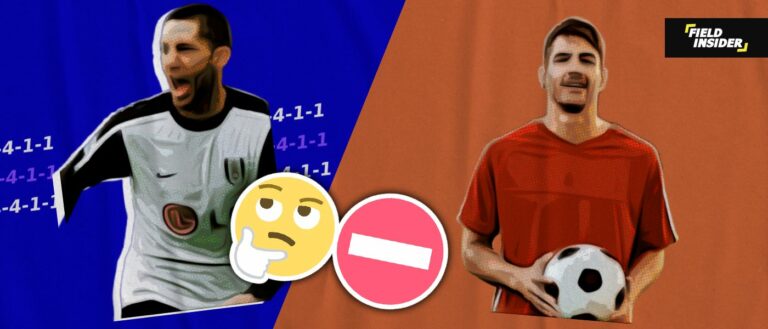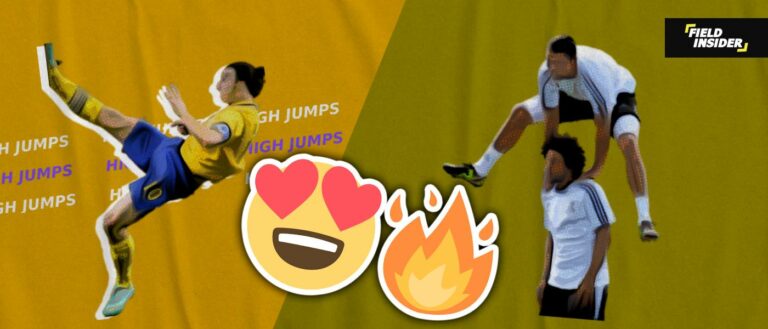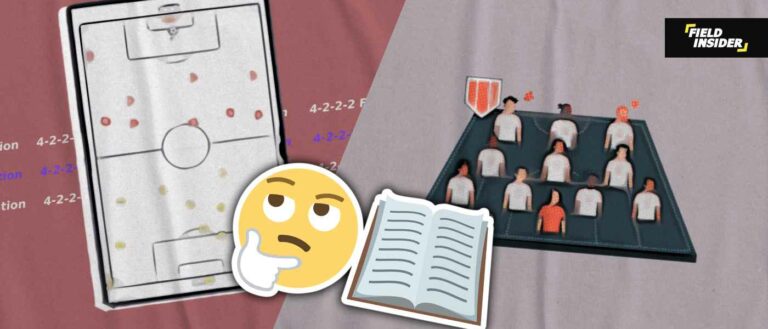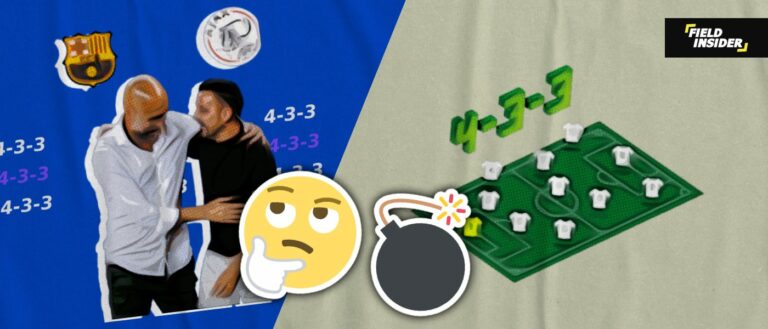Which Sport Your Child Prefers: How-To-Know Guide
Understanding which sport your child prefers can be a complex yet rewarding journey. As parents, recognizing and nurturing your child’s athletic inclinations is crucial.
In this guide, we delve into the nuances of identifying and fostering your child’s sports preferences with a blend of professionalism and in-depth knowledge.
Key Takeaway Table
| Aspect | Key Points |
|---|---|
| Early Signs | Observe natural talents, try different sports, watch together |
| Physical Attributes | Match sports to body type and strengths, consult experts |
| Interests & Personality | Assess individual vs. team preferences, consider personality traits |
| Trial Period | Encourage trying various sports for skill development |
| Support & Guidance | Provide emotional support, seek professional advice |
| Balancing Academics | Prioritize academics, create balanced schedules |
| Conclusion | Emphasize understanding which sport sport your child prefers |
The Early Signs
Observing and communicating with them can reveal early signs of which sport your child prefers. Whether it’s a natural inclination towards a particular sport or an emerging talent, these indications are vital. Exposure plays a significant role too; trying various sports and watching them together can fire a passion.

Observation and Communication
Observing your child’s activities can offer significant clues. Does your child show excitement when kicking a soccer ball or swinging a tennis racket? Maybe they spend hours shooting hoops in the driveway. These are clear indications of a growing interest in certain sports.
Encouraging open communication about their likes and dislikes in sports can also be revealing. Ask questions about what they enjoy the most and why, and listen actively to their responses.
Natural Talent and Inclination
Some children exhibit natural talent in specific sports from a young age. This could manifest as exceptional coordination in soccer, a strong arm in baseball, or agility in gymnastics.
Recognizing and nurturing these natural abilities can set the foundation for a fulfilling sports journey. However, it’s crucial to balance this with your child’s enjoyment and interest in the sport to avoid burnout or loss of interest.
The Role of Exposure
Exposure to a variety of sports is key to discovering which sport your child prefers. This could mean enrolling them in different sports clinics, watching various sports together, or attending local games.
Experiences like these not only broaden their understanding of different sports but also spark interest in activities they might not have considered otherwise. For example, learning about the strategic aspects of football formations or the dynamic play in a 5-a-side soccer game can be intriguing to a child.
Trying Out Different Sports
Encourage your child to try various sports. This hands-on experience is invaluable. Many communities offer introductory sessions in sports like soccer, basketball, tennis, and more. This practical exposure helps children understand the game’s nuances and discover what they truly enjoy.
Watching Sports Together
Watching sports together can be both educational and bonding. Discussing the 2023 UEFA Player of the Year, for example, could ignite a conversation about sportsmanship and dedication. Similarly, analyzing a 4-3-1-2 formation in a live match can make the viewing experience more interactive and educational.
Physical Attributes
Aligning sports with your child’s physical attributes, such as body type, size, and strengths, is essential. Consulting experts like coaches, trainers, and sports doctors can provide valuable insights into the best fit for your child.
Body Type and Size
Every sport tends to favor certain physical attributes. For instance, taller children might excel in basketball or volleyball, where height is an advantage.
Similarly, kids with a more robust build may find success in sports like football or rugby. On the other hand, sports like gymnastics or martial arts might be more suited to those with a compact, flexible build.
Understanding your child’s body type and how it aligns with the physical demands of various sports is key. This could mean exploring sports where their physical attributes give them a natural advantage.
Strengths and Weaknesses
It’s important to assess your child’s physical strengths and weaknesses. Does your child have exceptional endurance, or are they better suited to sports that require short bursts of energy? Are they more agile or possess greater strength?
This assessment can guide you towards sports that align with their natural abilities. For example, a child with great endurance might thrive in soccer or distance running, while one with quick reflexes could excel in sports like tennis or baseball.
Consulting with Experts
Seeking advice from coaches, and sports doctors can provide valuable insights into the best sports for your child. These professionals can assess your child’s physical readiness for certain sports, suggest areas for improvement, and even recommend sports that you might not have considered.
For instance, a football coach can provide a unique perspective on your child’s potential in the sport, taking into account their physical attributes and skill level.
Understanding Different Sports
Educating yourself and your child about the physical demands of various sports is also beneficial. For example, understanding the physicality required in a 5-2-3 football formation versus a 7-a-side game can help in making an informed decision.
This knowledge will enable you to guide your child towards a sport that not only interests them but also suits their physical makeup.
Interests and Personality
Assessing whether they gravitate towards individual or team sports, and indoor or outdoor activities, helps in identifying which sport your child prefers. Additionally, understanding their personality traits like competitiveness and social preferences can guide this choice.

Individual vs. Team Sports
The choice between individual and team sports can significantly impact your child’s sports experience. Some children thrive in individual sports like tennis, golf, or swimming. Others may prefer the camaraderie and collaborative aspects of team sports like soccer, basketball, or hockey.
Assessing your child’s social behaviours and how they feel about competing alone versus as part of a team is vital. For instance, a child who enjoys social interaction and teamwork might find more joy in a team sport than in a solitary sport like running.
Outdoor vs. Indoor Sports
Another consideration is whether your child prefers outdoor or indoor environments. Outdoor sports like football, baseball, and track and field offer fresh air and varying playing conditions, which some children love.
Indoor sports, on the other hand, such as basketball, gymnastics, or indoor swimming, provide a controlled environment that might appeal to others. This preference can be influenced by factors like weather sensitivity, enjoyment of nature, or comfort in more regulated settings.
Considering Personality Traits
Your child’s personality traits can also guide you in selecting the right sport. For instance, a child with a competitive nature might thrive in sports where there’s a clear winner and loser, like in a football match.
In contrast, a child who seeks enjoyment over competition might prefer sports where the emphasis is more on participation and personal improvement, like in recreational leagues.
Social Preferences
The social aspect of sports shouldn’t be overlooked. Some children enjoy sports that offer opportunities for social interaction and making new friends, like team sports. Others might prefer sports where they can focus more on individual performance.
Parent’s influence on Children’s Participation in Sports
Parents play a pivotal role in shaping their children’s sports participation, with their support and encouragement. Their active engagement and interest in their children’s physical activities can significantly boost the child’s motivation and commitment to sports.
University of Bacau conducted the study on a group of 97 children practicing various sports in Bacau, comprising 66 girls and 31 boys. The average age of the participants was 10.5 years.
The purpose of this study was to to identify the children’s motivation to practice sports. The finding of the study are presented in the following bar graph;
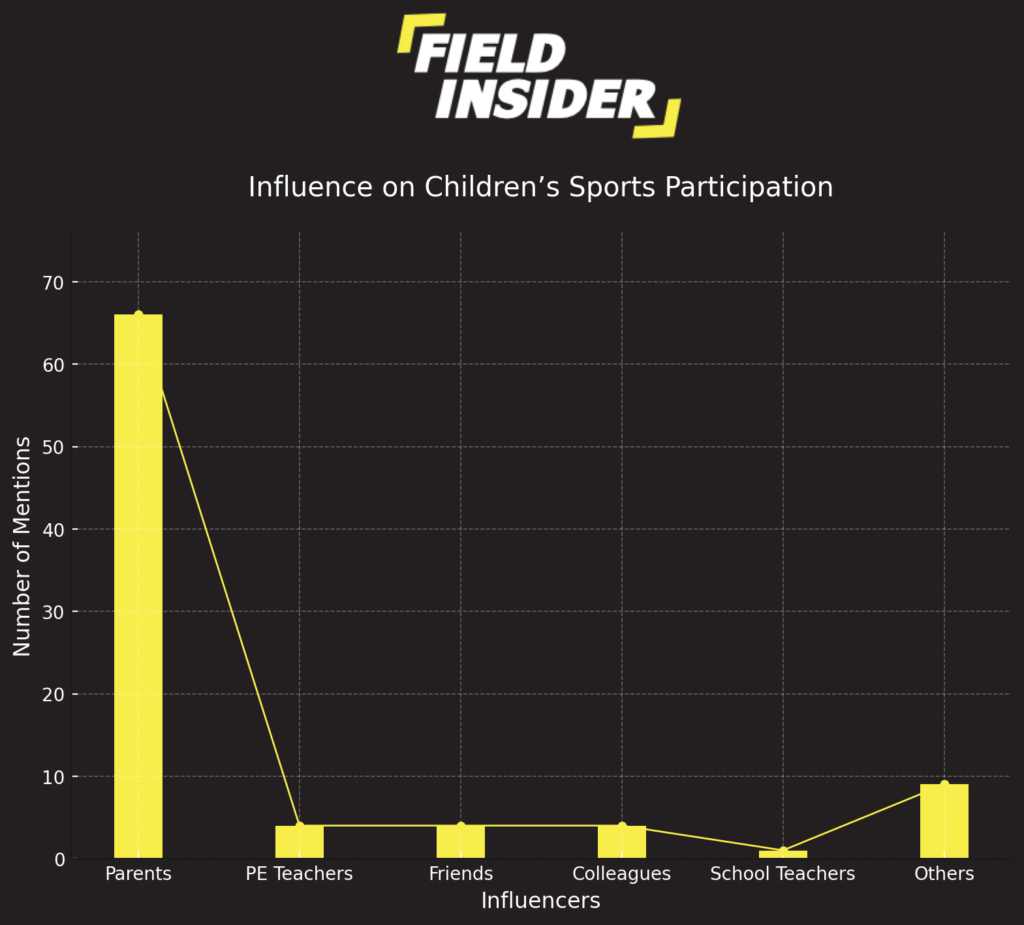
The chart illustrates the influence of different individuals or groups on children’s participation in sports, based on a study. The data shows:
- Parents have the most substantial influence, with 66 mentions.
- Physical Education (PE) Teachers, Friends, and Colleagues have a moderate influence, each with 4 mentions.
- School Teachers appear to have a minimal influence, with only 1 mention.
- The category Others is placed last on the chart, showing a significant influence with 9 mentions.
The visual representation makes it clear that parents are the primary influencers in the athletic activities of children in this study, followed by a distant but notable influence from other figures in their lives, with school teachers being the least influential according to the data provided.
Trial Period
The concept of a trial period in sports is crucial for children to discover their true passion and aptitude. This stage involves encouraging your child to experiment with various sports, providing them with the opportunity to explore, learn, and decide what they enjoy and excel at the most.
Encouraging Your Child to Try Different Sports
A trial period can be a period of exciting exploration for your child. Encourage them to participate in different sports, whether through school teams, local clubs, or community programs.
This exposure can range from popular sports like soccer and basketball to less mainstream activities like fencing or rowing. The key is to provide a wide spectrum of experiences .
Benefits of a Trial Period
- Skill Development: Engaging in various sports allows children to develop a broad range of skills. They might discover they have a knack for dribbling a basketball or an aptitude for strategic thinking in team formations.
- Confidence Building: Trying different sports can also be a significant confidence booster. It allows children to step out of their comfort zone, tackle new challenges, and celebrate small victories.
Monitoring and Feedback
During this trial period, it’s important to monitor your child’s response to each sport and offer constructive feedback. Notice which sport your child prefers, and seems to enjoy more, and where they show signs of promise.
However, it’s crucial to keep this feedback positive and encouraging, focusing on effort and enjoyment rather than just winning or performance.
Guidance and Support
Throughout the trial period, providing support and guidance is key. Help your child understand that it’s okay to not excel in every sport they try, and the importance lies in the experience and learning.
This can be a time for both parents and children to learn about commitment, perseverance, and discovering one’s passion.
Support and Guidance
Supporting and guiding your child through their sports journey is as crucial as choosing the right sport. This stage involves providing emotional support, dealing with setbacks, and seeking professional guidance, all of which play a significant role in your child’s athletic development and well-being.
Providing Emotional Support
- Encouragement and Motivation: It’s essential to constantly encourage your child, celebrating their efforts and improvements, regardless of the outcome of their sporting endeavors.
- Dealing with Setbacks: Learning to cope with disappointments and setbacks is a vital part of sports. As a parent, guiding your child through these moments, helping them understand that failure is a part of learning and growing, is fundamental.
Seeking Professional Guidance
- Coaches and Mentors: Engaging with coaches or mentors who specialize in youth sports can be highly beneficial. These professionals, such as experienced football coaches, not only provide technical training but also understand the nuances of coaching children.
- Sports Psychologists: In some cases, consulting with sports psychologists can be advantageous, especially for children dealing with performance anxiety or struggling to balance sports with other aspects of their life.
Balancing Support with Independence
While support is crucial, it’s also important to allow your child to develop some independence in their sporting journey. This could mean letting them make decisions about what sports they want to pursue or giving them responsibilities like preparing their own sports gear.
Balancing Academics and Sports
Maintaining a balance between sports and academics is crucial. This balance ensures that your child excels not only in their chosen sport but also academically, preparing them for a well-rounded future.

The Importance of Academic Priorities
While sports play a significant role in a child’s physical and emotional development, academic success is equally important. It’s vital to communicate to your child the value of education and how it complements their athletic pursuits.
For instance, many of the skills learned in sports, such as discipline and teamwork, are transferable to academic success.
Creating a Balanced Schedule
Developing a structured schedule that accommodates both sports and academics is key. This might involve setting specific times for homework, training, and rest.
It’s important to ensure that your child is not overburdened and that they have sufficient time to relax and enjoy other activities.
Time Management and Goal Setting
Teaching your child to manage their time effectively and set realistic goals is a crucial part of balancing sports and academics. This could involve creating a weekly planner that includes schoolwork deadlines and sports commitments.
Encourage your child to set short-term and long-term goals, both academically and athletically, and discuss strategies to achieve them. This approach not only helps in balancing their current activities but also instills skills important for future success.
Support from School and Sports Programs
Many schools offer programs that support student-athletes, understanding the unique challenges they face. Engaging with these programs can provide additional academic support, such as tutoring or flexible deadlines when necessary.
The Role of Parents
As a parent, your role in helping your child balance sports and academics cannot be overstated. This involves not only helping them with scheduling and goal setting but also being there to provide encouragement and support.
Conclusion
Recognizing which sport your child prefers, and supporting that, is a vital aspect of parenting. This guide aims to provide comprehensive insights into this process, emphasizing the importance of understanding and nurturing your child’s unique sporting journey.



